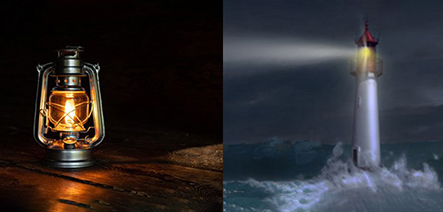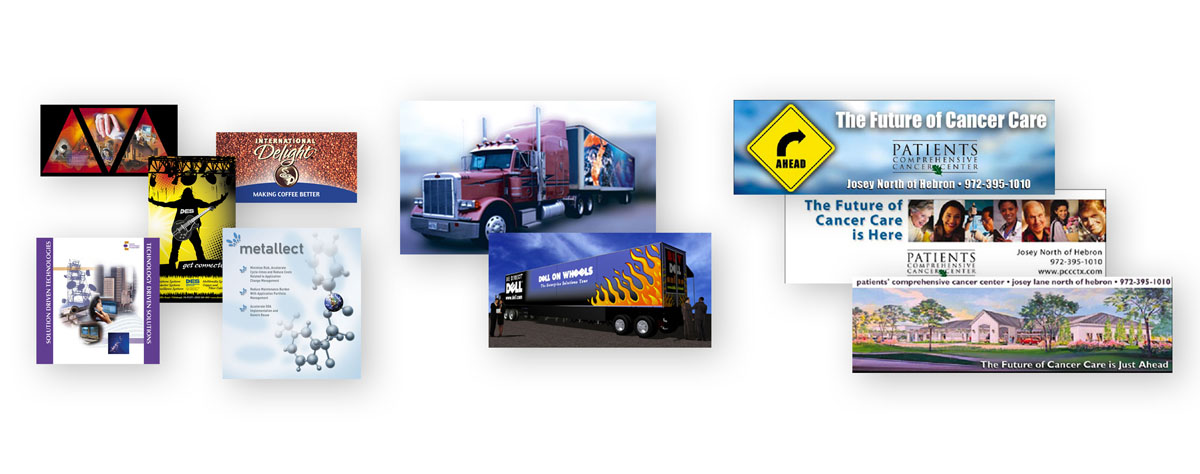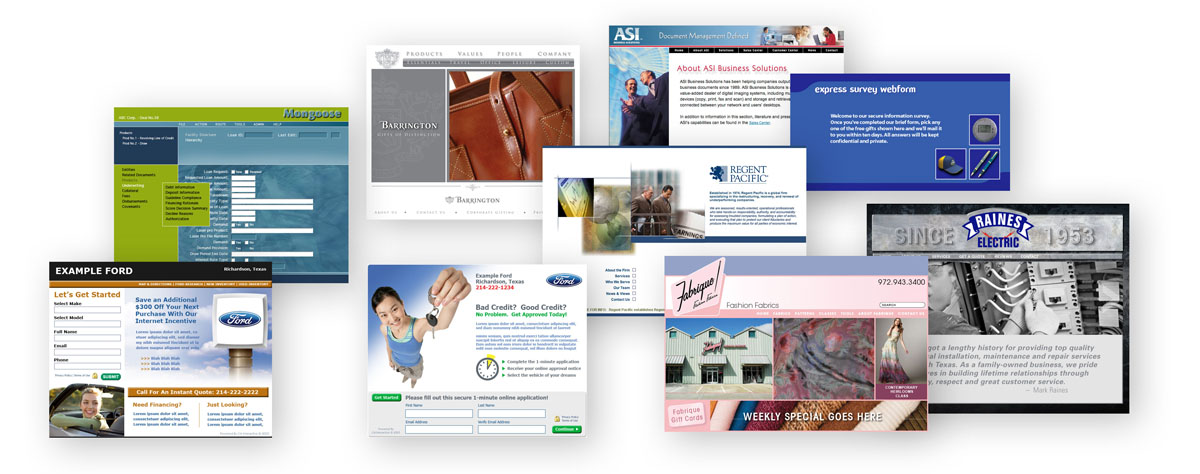Lanterns and Lighthouses

Lanterns and Lighthouses
One if by Land
I was raised in an urban environment, so it’s no great surprise that the memorable adventures of my youth (often accompanied by the significant revelations) occurred during trips to my aunt and uncle’s dairy farm outside Ardmore, Oklahoma.
About once a year, my family of seven would all pile into our not-so-trusty Plymouth station wagon and set out on the grand trek up I-35. In those pre-casino days, the primary roadside attraction was the cookie factory in Marietta, Oklahoma. There, you could trade your allowance money for a bounty of scratch-and-dent seconds. I kid you not, half-price broken cookies were a real thing.
Aunt Alma and Uncle Burt’s dairy farm was no Norman Rockwell version of the one-man show with a docile heifer, a three-legged stool, and a thirsty barn-cat. It was a modern commercial farm featuring a large herd, four automated milking stalls, and a massive, shiny stainless-steel tank which that bovine women’s club kept brimming with cool sweet milk, nestled ‘neath a topcoat of delicious cream – the perfect complement to those broken cookies.
My earliest dairy farm memory occurred when I was five or six years old. Being too young to realize that normal humans never started their day at 4:00AM, I volunteered to accompany my dad and uncle to the milking barn for the first milk run of a Sunday morning.
Yawning on the back porch of that farmhouse while everyone else slept, I was amazed by two things – an overwhelming multitude of stars like I’d never seen before, and that pungent, Earthy aroma of the farm. My uncle lit a kerosene lantern, handed it to my dad, and headed off towards the barn as we followed obediently.
I had questions:
“Why is the barn so far away from the house?”
“You smell that smell? It gets old after a while.”
It also got much stronger as we approached the barn.
“Why don’t you light the path to the barn?”
“Electricity costs money kid.”
“Why not use a flashlight instead of a lantern?”
“Batteries go dead. Now, be quiet or you’ll wake the hogs up.”
Along the way, the lantern, which only lit a twenty-foot circle, provided just enough illumination for us to avoid stepping on a few errant cow pies as well as a big brown scorpion out for his early morning stroll (or on his lonely trip home from an unlucky Saturday night at the insect bar). My dad – not a scorpion lover – let out the only squeal I ever heard him emit in his entire life and brought his Florsheim’s wingtip of doom down on that poor creature’s head. I began to understand the value of lanterns.
Two if by Sea
If you’ve ever toured an oil tanker or freighter, you’ll understand that they resemble miniature floating cities, complete with cultural caste systems. At the top are the imperial emperors and their retinue who inhabit the wheelhouse, followed by the professionals like engineers and mechanics who maintain the powerplants, further followed in pecking order by cargo specialists, then tradesmen (although the cooks may often rate even higher than professionals) and finally by the deckhands.
Among those wheelhouse courtiers are the wizards of navigation. They understand the magic behind the electronic gadgetry required to safely move the great mechanical behemoth from point A to point B. Whereas naval navigators of old depended on the stars, their modern counterparts depend primarily on artificial stars in low Earth orbit, emitting GPS signals. Nonetheless, navigators still maintain a back-up portfolio of maritime charts which highlight the location of underwater hazards.
That brings me to the point: Lighthouses are no longer the great beacons of maritime navigation. In fact, they never were. Rather than illuminating the way across an inky night, lighthouses have always been a flashing warning beacon that shouts, “DON’T COME HERE!”
The Luminocity of Leadership
Why then has the image of the lighthouse become the most ill-suited cliché in contemporary business coaching? From cheesy motivational posters to serious leadership presentations, the concept of magnificent leaders illuminating the way like towering lighthouses in the night, has become almost standard. That concept not only misrepresents lighthouses, it also distorts leadership.
Leaders who focus singularly on the grand goal while ignoring the state of their team are destined to sink. Only those in the wheelhouse need even know where the lighthouse stands. An engine room worker peering out the porthole at a distant lighthouse would completely miss the overheating engine. Likewise, a team member obsessed with the ultimate goal, to the detriment of his/her immediate responsibilities, represents a liability to the entire project.
What followers need from leaders is clear communication of the vision, accompanied by a realistic map showing both the route to success and potential obstacles to be overcome. Beyond that, every single follower needs a clear understanding of how they fit into the undertaking – what success looks like for them personally, and what help is available to increase their odds of a good outcome.
Without question, rogue waves will appear and threaten every project. Some rare obstacles may even be insurmountable. But skilled, motivated team members — following leaders who are committed to each member’s success, and operating within an atmosphere of open, honest feedback — stand the only chance of survival.
Just like my Uncle Burt back in 1960, real leaders know well where they’re headed but having pointed the way, they provide their followers with a lantern to illuminate the turds in their path, without focusing on every distant and distracting threat.
So, what do you need to change in order to lead more effectively? And must you be the head honcho in order to lead effectively? I have some ideas and I expect you do as well. Let’s get together for coffee and swap ideas. Who knows? We might both modify our thinking.
 The offer is on the table. Name your coffee shop in the DFW area and I’ll come meet you. I’ll even buy the coffee. Just hit that reply button and shoot me an email.
The offer is on the table. Name your coffee shop in the DFW area and I’ll come meet you. I’ll even buy the coffee. Just hit that reply button and shoot me an email.
Special thanks to Max Toy of Paladin Associates for his review and input. If you’re looking for a business consultant with proven expertise, to get your organization on track for maximum success, Max is that person.

“Thy word is a lamp unto my feet, and a light unto my path.”
― Psalm 119:105

Did someone forward this newsletter to you after reading it themselves? Don’t settle for that!
CLICK HERE
to get a fresh, unused copy of this newsletter sent directly to you every Sunday morning. If you decide it stinks, you can always unsubscribe.
“The Happiness Advantage”
an “Big Potential”
– Shawn Achor
This guy is rapidly becoming one of my favorite writers. Both of these are great books, filled with psychological studies and applications that demonstrate what a simple change of attitude and habits can accomplish.













